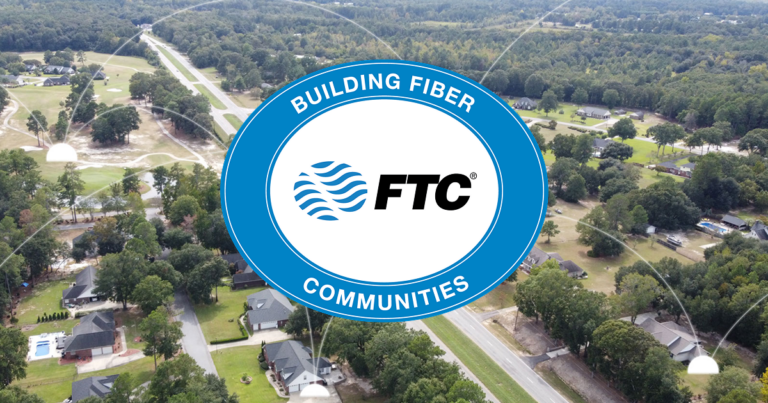To protect themselves from callers trying to con them out of money or information, people need to understand how different types of phone scams work. Fraudulent calls are more than a nuisance, and when a phone number ends up in the wrong hands, it can cause financial and personal repercussions. Spam calling might seem outdated compared to today’s convincing email and internet scams, but it remains a lucrative method for criminals to target victims.
Any phone type, whether it be mobile phones or any type of landline, is susceptible to malicious activity. Below are just some of the targeting methods utilized by criminals and ways to identify them and keep from becoming a victim.
How Scammers Find Targets
Most people contacted by fraudulent actors do not know why or how they were chosen and many realize the calls are fake only after it is too late. Scammers often select targets who are vulnerable financially or personally by using public records to identify people going through foreclosures, bankruptcy or divorces. The actors can then make promises for opportunities that are difficult for people experiencing hardship to refuse. Social media accounts also contain valuable personal details, such as relationship status, occupation or hobbies that scammers use to personalize hoaxes.
Fraudsters obtain phone numbers from various sources, including the dark web, employment postings, mobile account sign-ons and auto-dial number generators. Individuals must be as protective of their phone number as they are of other personal or financial information to prevent the phone from becoming a gateway for a scammer.
How Phone Scams Work
Scammers gain access to personal or financial information using many types of phone scams deployed over several calls if needed. When targets become familiar with the fake offer or receive several notices regarding an issue, they begin to drop their guard and trust the ruse. Scammers build a relationship and then ask for money or information using increasingly persistent tactics. The pressure of made-up deadlines and threats often convinces people to comply.
Types of Spam Calls and Phone Scams
Scammers go to elaborate lengths, such as imitating officials and designing fake contests or warranties, to target people for money or personal information. While many homeowners consider robocalls to be harmless, most illegal scams begin with pre-recorded calls that test the contact number. Of the 1.2 million complaints the Federal Trade Commission received in 2023 from people on the Do Not Call List, many were fraudulent calls and fell within these five categories:
- Imposters
- Medical and prescriptions
- Reducing debt
- Energy, solar and utilities
- Warranties and protection plans
Methods To Stop Phone Scams
By learning how to identify spam calls and using technology to filter out fraudulent callers, people can stop phone scams before they cause damage. Any unsolicited call should be a red flag, especially when the caller requests information or money. People can protect themselves from fraudsters using these tactics for stopping phone scams:
Hang Up the Phone
Scammers can make a call appear to be coming from any area code or agency they wish. This is known as caller ID spoofing and it tricks many people into answering scam calls. Even though it is unlikely someone can be scammed just by answering a call, picking up the phone tells the scammers that the number is valid and can be added to phone lists for future blackmail or swindling schemes. Anyone who hears a pre-recorded robocall or a caller beginning his or her spiel should hang up immediately. This ensures the recipient of the call does not inadvertently press a number on the dial pad and does not afford the caller time to make an impression or offer.
Enroll in the Do Not Call List
Joining the Do Not Call list puts phone numbers into a database that legitimate telemarketers consult and follow. Although this registry is not foolproof, it does reduce the number of unsolicited calls a person receives, making scammers easier to spot. Businesses that do not abide by the Do Not Call policies can be reported and penalized for illegal practices, reducing the number of pesky sales calls people receive.
Use Call Blocking and Rejection Technology
The latest wireless phones feature call detection software to identify potential spammers similar to caller ID. Third-party apps can also be added to older phones to help identify fake and spam calls. Anyone with an outdated phone might want to upgrade to a new phone that offers these features and the latest security to keep information private.
Caller ID and call-rejection technology make spam detection easier for landline and VoIP users. Those in the market should look for a service provider that offers robust voice-calling features. The Anonymous Call Rejection function automatically identifies and blocks incoming spam calls, offering peace of mind to households with young children or susceptible adults. The Telemarketer Interceptor feature blocks unsolicited calls and notifies the marketer that the household does not accept these calls.
Confirm Unknown Caller Identities
South Carolina is currently seeing a rash of scams accusing people of missing jury duty or defaulting on parking tickets or other fees and demanding they pay fines. People can be disarmed easily by someone pretending to be an authority figure or government agent and they offer private information or settle a bill without a second thought. The police, IRS or courthouse officials will not accuse a person of a serious crime over the phone nor will they threaten an arrest or demand payment immediately. To verify whether a call from the police or enforcement agent is genuine, the recipient should gather information about the caller, including his or her title, badge number and agency location, and then call the person’s headquarters to confirm the legitimacy.
Report Scam Calls
Any type of phone scam should be reported, whether or not it was successful. The Federal Trade Commission encourages people to report any unwanted call, pre-recorded message, unsolicited sales call or fraudulent communication. Document the date and time and other pertinent details, especially any money paid, to the authorities so they can issue a warning to the public and begin tracking the fraudulent party.
FTC’s calling features include call blocking options that any household will appreciate. Customers can add any of these options to an affordable phone plan or package to enjoy services tailored to their needs without overspending.




